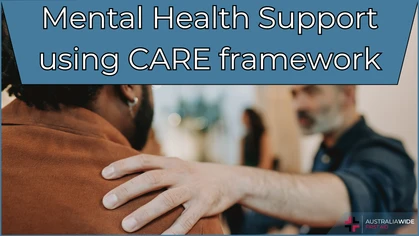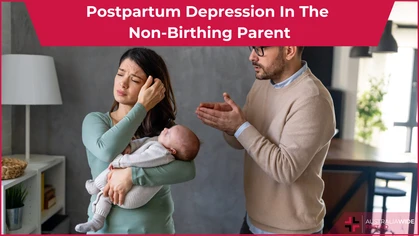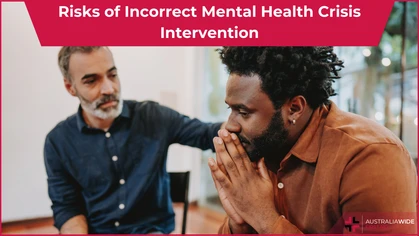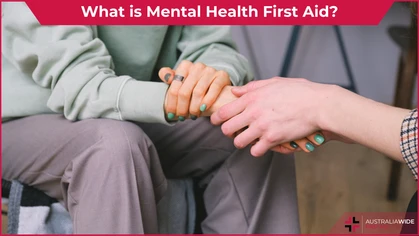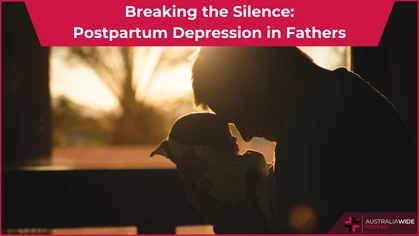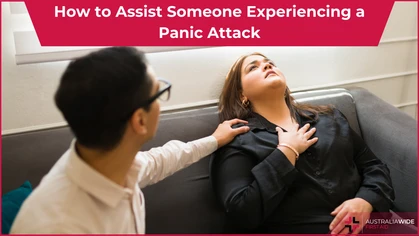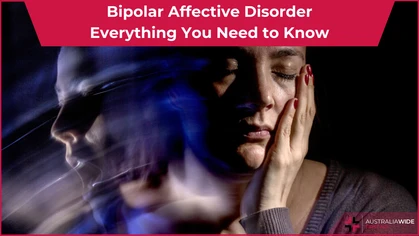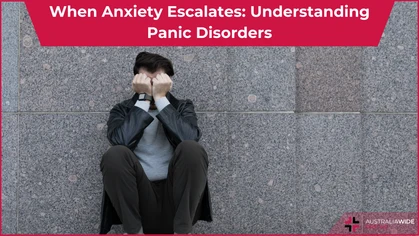How to Build Mental Health and Wellness in Teenagers

Mental Health
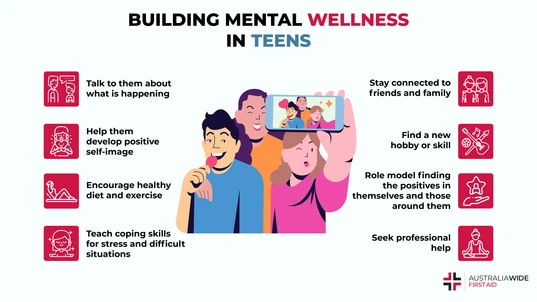
Just like our physical health, our mental health can deteriorate if we don't look after it. It's important to help teenagers develop the skills to build their mental wellness, so that they can handle stress and life's many challenges.
Mental health is something that we all have and need to take care of. Just like our physical health, mental health can deteriorate if we don’t look after it. It’s important to have good mental health for teenagers so they can build resilience and be better equipped to deal with the challenges life throws at them.Warning Signs of Mental Ill-Health in Teenagers
There are a number of warning signs that can indicate that a teenager is struggling with their mental health. If you notice your teen is:- withdrawing from friends and activities they used to enjoy
- sleeping more or less than usual
- having difficulty concentrating
- eating more or less than usual
- experiencing mood swings
- exhibiting signs of self-harm
How to Talk to Your Teen About Mental Health
If you’re worried about your teen’s mental health, it’s important to have an open and honest conversation with them. Let them know that you are there for them and want to help. It can be difficult for teenagers to talk about how they are feeling, so be patient and try to create a safe and welcoming environment for them to open up in. Start the conversation with something like: "I’ve noticed you’ve been withdrawn/sleeping more/etc. and I just wanted to check in with you about how you’re doing?" If your teen is reluctant to talk, try asking specific questions about how their day was or if anything is worrying them. It’s also important to let them know that it’s okay to not be okay and that they can come to you anytime if they need to talk. Praising your teen and letting them know they are important to you can also encourage them to open up about how they are feeling.Building Mental Health and Wellness in Teenagers
There are a number of things you can do to build mental health and wellness in teenagers:Encourage them to express their feelings and talk about any problems they’re having
Teaching teens to understand their own emotions and be able to express them can help them cope with difficult situations. There are a number of ways you can teach your teen to express their feelings, such as:- Journaling
- Talking to a trusted adult
- Participating in therapy or counselling
- Exploring creative outlets, such as art, music, or writing
Help them develop a positive self-image
Boosting your teenager’s self-esteem can help them feel better equipped to deal with life’s challenges. There are a number of things you can do to help your teenager develop a positive self-image, such as:- Complimenting them regularly
- Encouraging them to pursue their interests and talents
- Helping them set realistic goals
- Talking to them about body confidence and helping them understand that everyone is unique and beautiful
Encourage healthy eating and exercise
A healthy diet and regular exercise can improve both physical and mental health. To help your teenager eat healthily, you can:- Encourage them to eat a variety of fruits, vegetables, and whole grains
- Limit sugary and processed foods
- Encourage them to drink plenty of water
- Help them plan healthy meals
- Encourage them to participate in a sport or other physical activity they enjoy
- Join a gym or exercise class together
- Go for walks or bike rides together
Teach them how to manage stress and cope with difficult situations
Stress is a natural part of life, but it’s important to teach your teenager how to manage it in a healthy way. There are a number of things you can do to help your teenager cope with stress, such as:- Encouraging them to take breaks when they’re feeling overwhelmed
- Teaching them relaxation techniques, such as deep breathing or progressive muscle relaxation
- Helping them identify and manage their triggers
- Encouraging them to seek professional help if they’re struggling to cope
Encourage them to stay connected with friends and family
Friends and family can provide valuable support during difficult times. To encourage your teenager to stay connected with their loved ones, you can:- Help them plan get-togethers and activities
- Encourage them to stay in touch through phone calls, text messages, social media, or other means
- Teach them how to resolve conflicts
Help them find a hobby or activity they enjoy
Hobbies and activities can help reduce stress, promote positive self-esteem, and provide a sense of accomplishment. To help your teenager find a hobby or activity they enjoy, you can:- Talk to them about their interests
- Encourage them to try new things
- Help them find resources, such as classes or books, about their chosen activity
- Accompany them to participate in their hobby or activity
Promote positive thinking and help them to see the good in themselves and the world around them
One of the best things you can do for your teenager is to help them develop a positive outlook on life. There are a number of ways you can promote positive thinking, such as:- Encouraging them to express gratitude for the good things in their life
- Helping them develop a support network of friends and family
- Teaching them how to reframe negative thoughts in a more positive light
- Encouraging them to seek professional help if they’re struggling to cope
Seek professional help if you’re concerned about your teenager’s mental health
If you’re concerned about your teenager’s mental health, it’s important to seek professional help. Mental health professionals can assess whether your teenager is experiencing a mental health problem and provide treatment if necessary. To find a mental health professional in your area, you can:- Talk to your teenager’s doctor
- Contact your local mental health association
- Search for providers online
- Call a helpline, such as Beyond Blue, Lifeline or Kids Help Line.
Conclusion
If you’re concerned about your teenager’s mental health, it’s important to seek professional help. You can also purchase a first aid course to be able to respond to mental health issues and crises as they emerge. Do you have other ideas for how to build mental health and wellness in teenagers? Share them with us in the comments below! Australia Wide First Aid offers a First Aid course wherein you can develop the knowledge and confidence to assist those who are in emergency situations and are at their most vulnerable.Additional Resources
For more information on how to develop mental fitness in young people, head to our Resource Library. You will also find tips and tricks for building mental fitness in children, and for rebuilding mental fitness after the COVID-19 pandemic.Mental Health Support
Understanding mental health through education is the cornerstone of breaking stigma and fostering supportive communities. Without this knowledge, outdated beliefs can prevent people from accessing the care they deserve. Mental health is as essential to wellbeing as physical health. Spotting the early signs of mental ill-health ensures that individuals can access the right support before situations escalate into crises. By taking a Mental Health Support Course , you’ll gain valuable insights and practical tools to make a meaningful difference in the lives of those facing mental health challenges. If an in-person course doesn't suit you, we also offer a fully-online Mental Health Support course to give you the knowledge and tools you need to be able to assist someone who is experiencing poor mental health or is in a crisis. Completed from the comfort of your own home, earn your Certificate of Completion to give to your employer, put on your resume, or simply move forward with the knowledge that you can lend actual help to those who may need it.
Originally published at
https://www.australiawidefirstaid.com.au/resources/building-mental-wellness-in-teenagers
as part of the Australia Wide First Aid Articles Library

